Is Your SSD Slow to Load Games? Here Are New Fixes!
If you're experiencing slow loading speeds on your SSD, especially when loading games, you're not alone. The culprit behind this issue is often a combination of factors, including fragmentation, TRIM not being enabled, or a dirty SSD. To resolve this, Qiling recommends checking if TRIM is enabled on your system, running a disk cleanup and disk defragmentation, and periodically running a disk clean-up and disk defragmentation to maintain your SSD's performance. Additionally, updating your SSD's firmware can also help improve loading speeds. By implementing these solutions, you can breathe new life into your SSD and enjoy faster loading times.
| ⏱️Duration | 5-7 Minutes (Step-by-step Tutorial) |
| 💻Complex Level | Low, step-by-step guide |
| 🖌️ Causes |
"Common issues that can cause a computer to fail to boot include low disk space, internet connectivity problems, file system errors, malware or viruses, and overheating. Additionally, incorrect boot order settings can also prevent a computer from booting properly. |
| 🔍Fixes |
Many gaming enthusiasts are experiencing a frustrating issue where their solid-state drive (SSD) takes a long time to launch or load games, despite its reputation for speed. This problem is being reported on various online forums, with users expressing disappointment and confusion over the slow performance. The issue is affecting some users' gaming experience, making it difficult to enjoy their favorite games.
Your game is loading slowly on your SSD due to several possible reasons, including insufficient space on the SSD, low RAM, and viruses infecting the system.
I'm happy to help you troubleshoot why your game is loading slower on your SSD compared to your friends' hard drives. Can you tell me more about your system specs, the game you're playing, and any recent updates or changes you've made to your PC? I'll do my best to help you figure out what might be causing the slow load times.
After conducting research and testing, we identified possible causes of the error and effective methods to fix it, ultimately providing a solution to effectively solve this error.
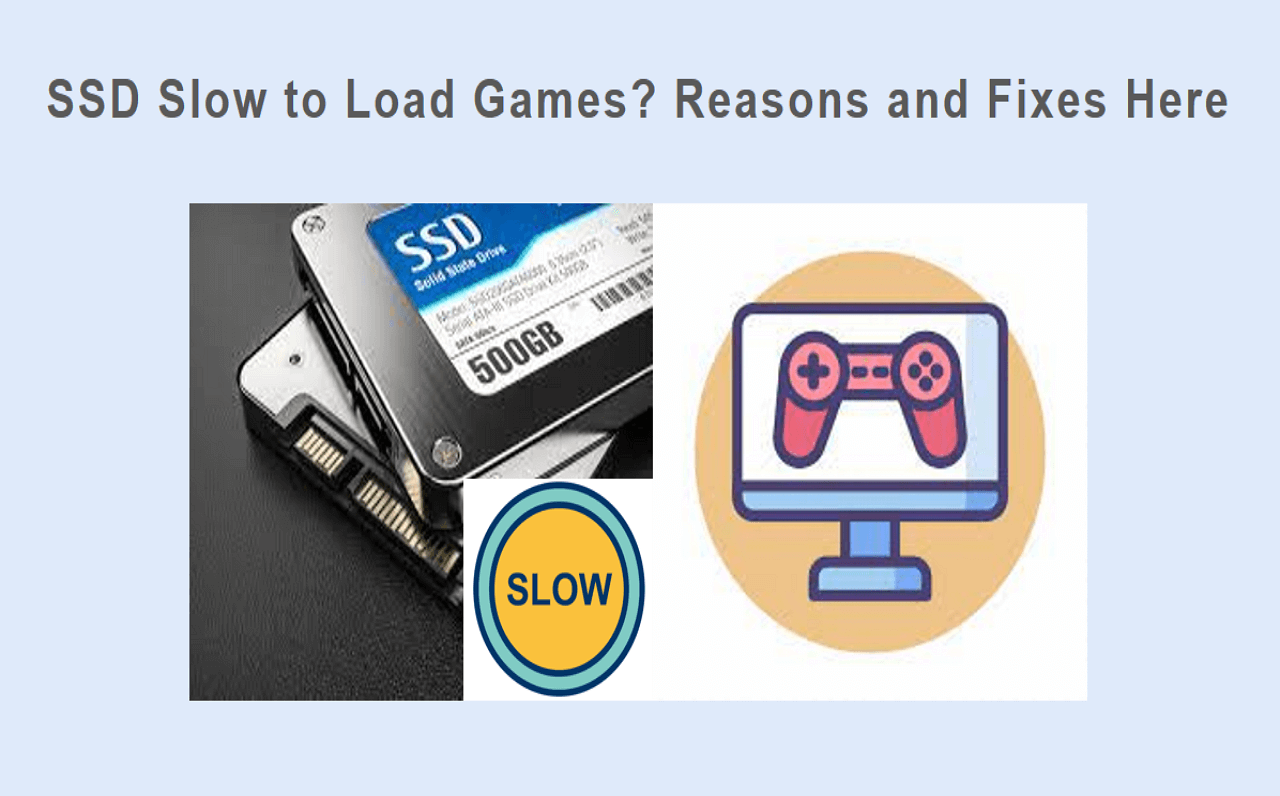
Why Is Your SSD Slow to Load Games
Users install games on SSDs for the speed advantage, but may find them slower over time, particularly when loading games, despite the high speeds of NVMe SSDs.
Slow SSD loading speeds can be frustrating, especially when they're more expensive than regular HDDs. Several factors could be contributing to the issue, including low disk space errors, internet connectivity problems, file system errors, viruses, or overheating on your SSD. Additionally, if your SSD isn't set as the first boot device, you may experience a noticeable slowdown in read and load speeds, making it essential to check your boot order to resolve the problem.
To fix this error, you can find the solutions in the next section.
How to Fix SSD Slow to Launch Games Error
To make your SSD load games faster, consider the following six methods. By implementing these solutions, you can improve the loading speed of your SSD when playing games. These methods include [insert the six methods]. By applying these tips, you can enjoy a smoother gaming experience with your SSD.
- Fix 1. Free Up More Space on Your SSD
- Fix 2. Check SSD Temperature
- Fix 3. Test SSD Speed
- Fix 4. 4K Align the SSD
- Fix 5. Set the SSD as the Boot Drive
- Fix 6. Format the SSD
We will give you Step-by-step guides for the following six methods. Now, let's learn them one by one.
Fix 1. Free Up More Space on Your SSD
If you take up more than 70% of the SSD space, the SSD will slow down when loading games or performing other read-and-write operations, so consider uninstalling unnecessary applications and cleaning up the desktop.
To free up space on your SSD, consider deleting unnecessary files, using the Disk Cleanup tool to remove temporary files, and handling downloads by saving them to an external drive or the cloud. You can also discard temporary files and consider saving data to the cloud to make the most of your SSD space.
Fix 2. Check SSD Temperature
High temperatures can cause an SSD to slow down when loading games, so it's essential to monitor its temperature. The Qiling Disk Master tool allows you to accurately and safely test the temperature of your SSD, displaying its health status in real-time. If the temperature is too high or other indicators are abnormal, it will alert you, enabling you to take action to prevent potential issues. You can download this tool to test your SSD.
Step 1. Launch Qiling Disk Master and click the blue arrow to activate the "Disk Health" feature under the "Discovery" section.
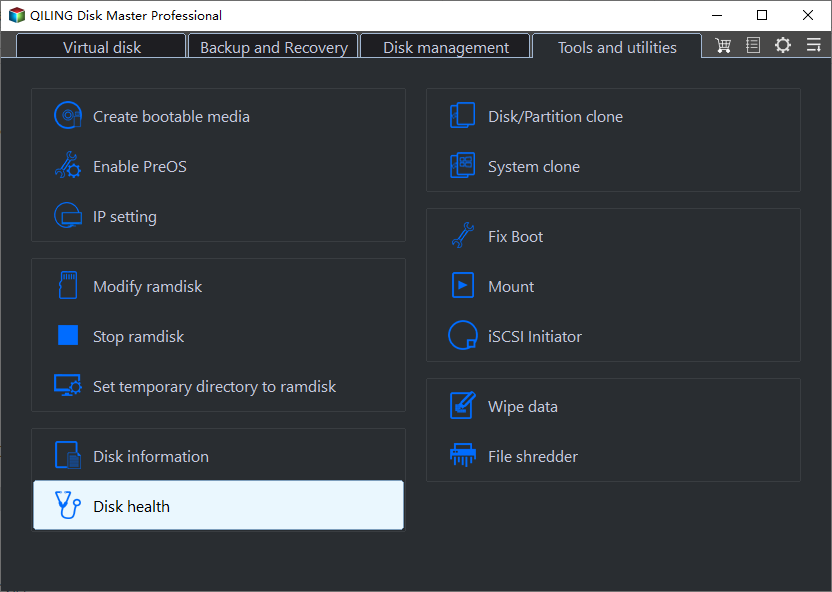
Step 2. To check the health condition of your disk, select the target disk and click the "Refresh" button, which will display the health status of your disk.
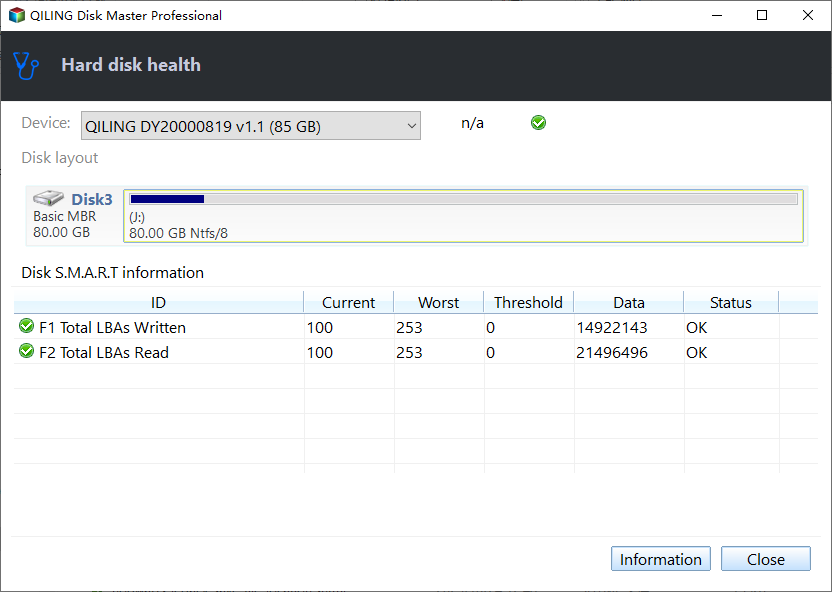
If your SSD is overheating, installing a heatsink can improve your gaming experience. You can find more information about SSD temperatures through the following links.
Fix 3. Test SSD Speed
In addition, you also need to use this tool to test the SSD read and write speed because there may be other hardware errors, system errors, or errors in the game itself that cause the SSD to load the game too slowly. The following is how to use Qiling Disk Master to test the read and write speed of SSD.
Step 1. Launch Qiling Disk Master, click the download button to activate DiskMark under the Discovery section.

Step 2. To begin the test, select the target drive, test data, and block size from the drop-down options provided. This will initiate the testing process.

Step 3. Once everything is configured, click "Proceed" to begin the disk test. This will display the Sequential read speed, I/O, and Delay data, providing a comprehensive view of your disk's performance.

If the read and write speed on your SSD is normal, it means that the slow loading of games on your SSD is likely due to other factors. However, if the speed is not normal, you can try the next fix to improve the performance of your SSD.
Fix4. 4K Align SSD
4K Alignment is a technique used to improve the performance of Solid-State Drives (SSDs). It helps to reduce fragmentation within the SSD, which can slow it down over time. The Qiling Disk Master's 4K Alignment feature can quickly optimize the SSD's performance, providing a better gaming experience. This is achieved by reorganizing the data on the SSD to minimize fragmentation, resulting in faster loading times and improved overall system responsiveness. By utilizing 4K Alignment, users can breathe new life into their SSDs and enjoy a smoother, more efficient computing experience.
Step 1. Go to "Toolkit" and choose "4K Alignment".
Step 2. Select the disk you want to align and click the "Start" button.
Fix 5. Set the SSD as the Boot Drive
To solve the problem of the SSD not being the boot disk, configure the SSD as a boot drive by following these steps: If the SSD is not your boot disk, the loading speed of the SSD will also be affected. You can solve this problem by configuring the SSD as a boot drive. To do this, you can set the SSD as the primary drive in your computer's BIOS settings, or you can reinstall your operating system on the SSD.
Step 1. To reset your PC, restart it and press the specific key for your computer brand (usually F2, F12, or Del) to enter the BIOS settings.
Step 2. Enter the BIOS settings by pressing the designated key (usually F2, F12, or Del), change the boot order to prioritize the SSD, and select it as the primary boot device.
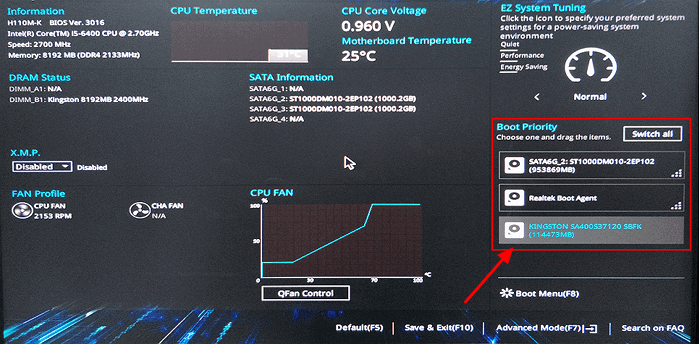
Step 3. Save the changes you've just done and exit the BIOS, then restart the PC.
You May Also Like:
Fix 6. Format the SSD
Formatting the SSD is the final fix, which can make the drive as fast as a new one and potentially remove viruses from the SSD.
Step 1. To create and format a hard disk partition, click "Search" and type "Create and format hard disk partition." Then select it and open Disk Management.
Step 2. Select the target SSD, right-click on it, and format it.
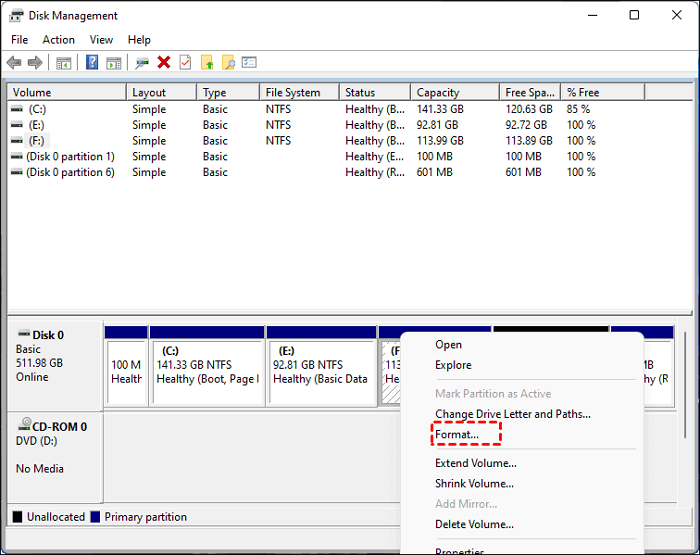
Step 3. Here, you can determine the volume label, allocation unit size, and file system for your SSD.
Step 4. Then click "Format" to confirm your action.
Conclusion
If your SSD is loading games too slowly, it might be due to various reasons such as high temperature, insufficient space, viruses, or system file errors. To resolve this issue, you can try the following solutions one by one: [insert solutions here]. If these solutions are helpful, feel free to share this article to assist others.
SSD Slow to Launch Games FAQs
It's irritating if an SSD is slow when loading a game. To make things easier, you can read the following questions and answers.
1. Why does my SSD take so long to load games?
The game loading speed can be affected by viruses, unstable internet, file system errors, low disk space, overload, or overheating. To resolve this issue, regularly check the SSD health status and keep the SSD usage below 70% of its total capacity.
2. Does an SSD affect in-game loading?
SSDs significantly outperform HDDs in loading and launching games, thanks to their lack of moving parts. This advantage translates to faster load times for levels and games, providing a smoother experience, especially in titles that stream assets from storage.
3. What could cause an SSD to have slow load times in games?
This error can occur due to various reasons, including SSD slowness caused by overheating, low disk space, viruses, or file system errors, which can be resolved by addressing these underlying issues. Additionally, if the SSD is the boot drive, it may take less time to load or launch a game.
Related Articles
- How to Backup Gmail Emails to Outlook for Windows 11/10/8/7
- Nintendo Switch SD Card Format: How to Format SD Card for Nintendo Switch
- How to Unlock MacBook Pro Without Password [6 Tested Plans]
- Upgrade from Monterey to Ventura | Detailed Information